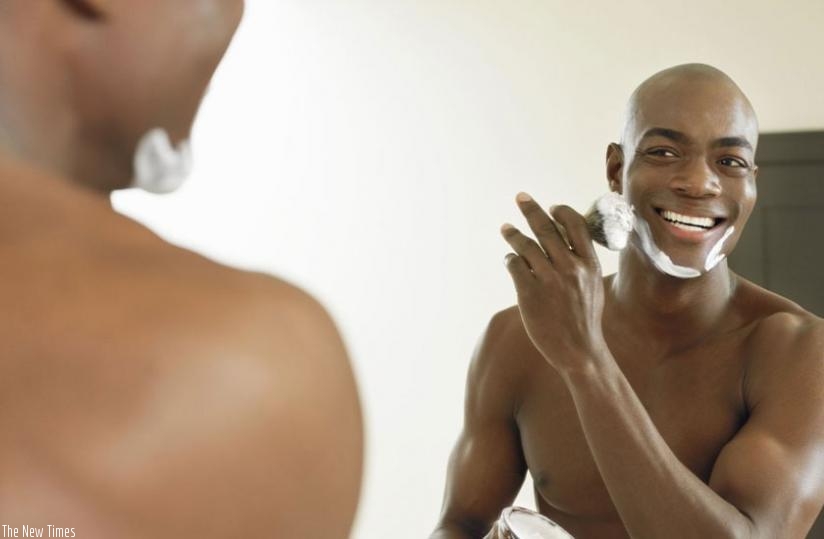Boils or abscesses can be quite embarrassing and cause immense discomfort, especially when they appear on sensitive areas of the body such as on buttocks or thighs.


Boils or abscesses can be quite embarrassing and cause immense discomfort, especially when they appear on sensitive areas of the body such as on buttocks or thighs.
And that exactly was what befell Elizabeth Batamuliza, a receptionist at Archgrid Consultant in Kigali, when a boil appeared on her thigh, making it difficult for her to walk.
"It was difficult for me to walk because it was painful. I remember not reporting to work for three days to avoid being laughed at by my colleagues. Those three days seemed like a month,” she says.
However, medics say boils mostly affect areas with hair follicles such armpits, groin, scalp and the anal region. They can also affect internal organs like the brain, breast, liver and kidney.
Dr Rachna Pandey of Ruhengeri Hospital says boils are swollen areas within body tissues containing an accumulation of pus, normally appearing in hair follicles or oil glands. The infection is mostly caused by the bacteria called staphylococcus aureus.
She says microbes may enter the skin through a cut or travel from the hair follicle to skin, where it forms a red, painful swelling in a few days in which pus starts to accumulate, causing more pain.
"The most common cause of boils is bacteria, blocked sweat glands or small cuts and bruises to the skin during shaving,” says Albert Ndata, a general practitioner in Kigali.
Who is at risk?
Ndata says although anyone exposed to unhygienic conditions can get boils, they are more common in patients with low immunity.
"Patients with diabetes and those with HIV have low immunity, so they have greater susceptibility to boils,” he says, adding that poor hygiene, exposure to dirty environments and some types of skin infections are among the risk factors.
He, however, cautions against scratching itchy skin or use of cosmetic products that are not approved by medics, saying this may accelerate the formation of the boils.
Daniel Gahungu of the Polyclinique de I’Etoil at Saint Famillie says a bruised or cut skin poses high chances of one developing boils.
"Exposed damaged skin creates a conducive environment for the germs to enter and form boils. Also, germs can enter through the pores of the skin, especially if one doesn’t maintain good hygiene,” he says.
According to Pande, if boils go untreated, they may lead to further complication.
"It’s always good to treat boils, because if this is not done it can lead to a growth in the size of the abscess formed. The resulting infections can also spread to other parts causing more boils or even causing septicemia in the blood stream,” she warns.
Pande further explains that, untreated boils can drain in the lymphatics resulting in enlargement of lymph noses.
The patient can also develop fever.
She says signs and symptoms of boils include redness and swelling of the skin, with severe pain and a sensation of heat at the site of the infection.
Treatment and prevention
Gahungu says treatment should start as soon as the formation of the boil starts.
"The affected area should be applied with pommadi ctyolee to ease the pain as well as to bring it to maturity.
After about three days, the patient is advised to have the pus removed using a clean piece of clothe with an antiseptic,” he says.
Gahungu adds that after the boil has been extracted, gauze should be used to remove the pus that could have stuck inside to prevent further deepening.
Dr Ndata warns against squeezing the boil when attempting to drain the pus without a physician’s guidance.
"One should not attempt to squeeze it in order to drain it as this can spread the infection further, leading to formation of boils or other infections in other parts,” he cautions.
According to Ndata, one should make sure they see a doctor in case they develop a fever or if the boil bulges or spreads to surrounding areas.
"Using antibiotics either in tablet or injection form with anti inflammatory drugs can ease the pain and swelling,” Pande says.
She adds that if an abscess is full with pus it may burst spontaneously or would need a surgical drainage.
Regular cleaning and dressing of the wound after incision ensures complete removal of infection.
Pande also points out that to avoid boils, nicks and cuts should be avoided. If the skin or some body part is itchy, it is advisable to rub that part with a clean soft napkin/tissue, instead of scratching with nails because nails can be a source of infection causing boils.


